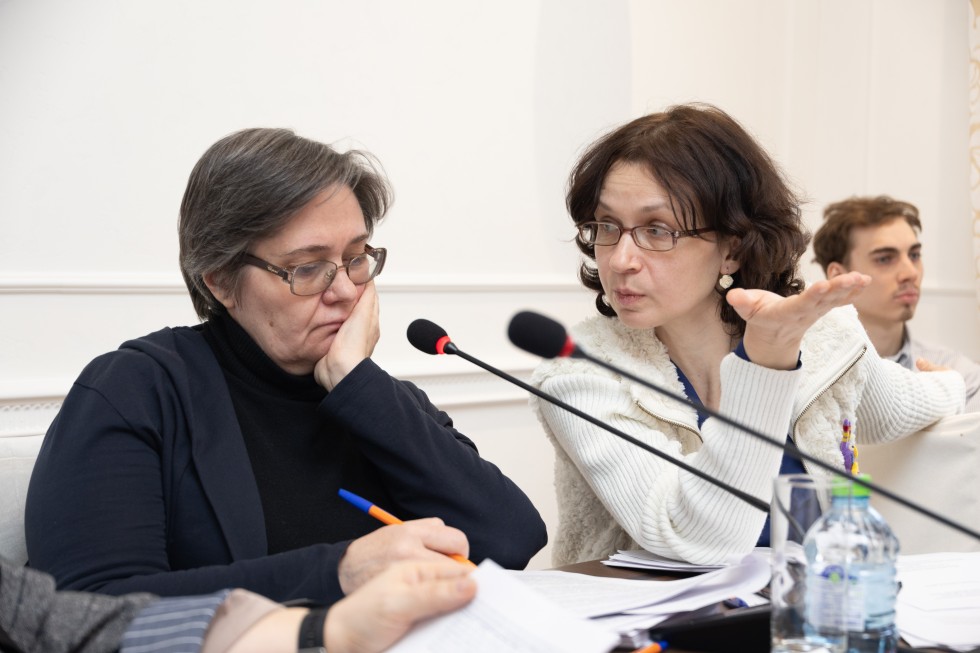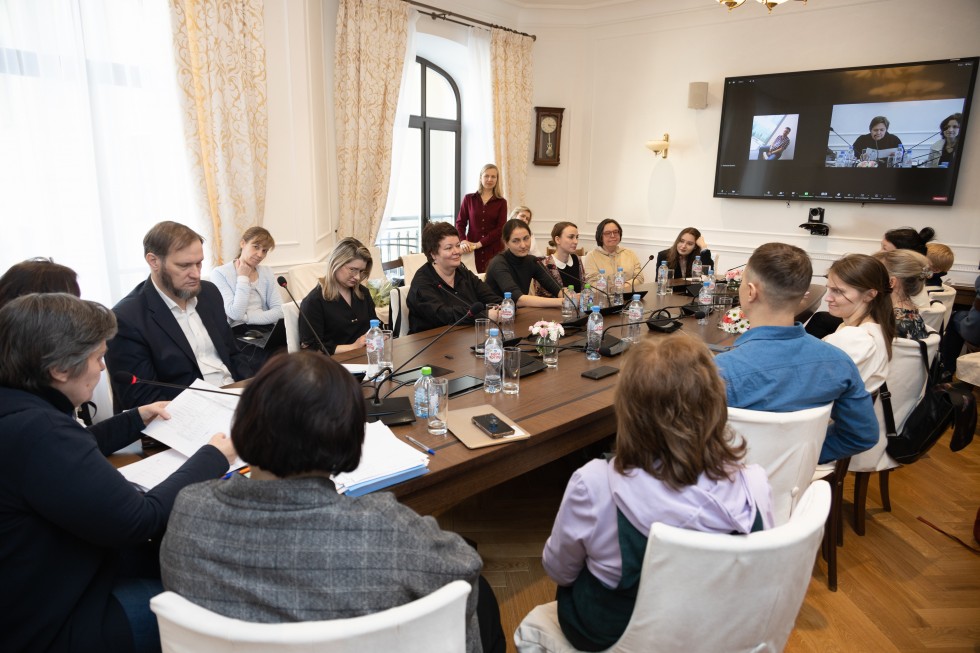Elizaveta Oleskina: “May You Be Many in Number!”
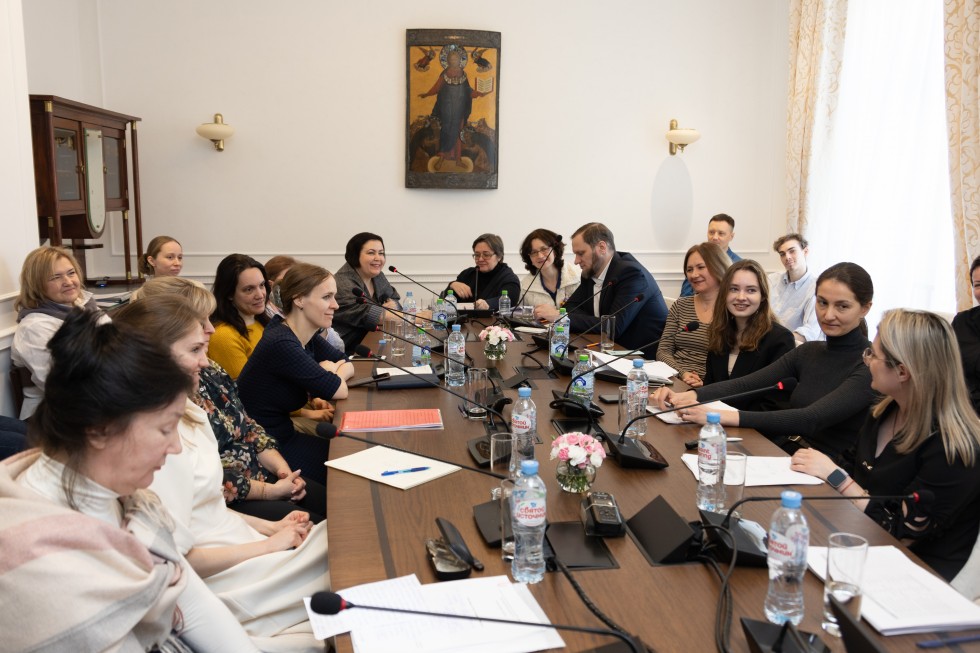
Among the programme’s graduates are employees of various foundations and social work organizations, as well as people without any experience of social work in the past. The results of the training, a significant portion of which is dedicated to practice, are presented by participants as written analyses showing the social coordination experience they have gained and the help they have given to specific people. These analyses provide answers to such questions as: “what were the primary needs communicated to you by the client?”, “how were available resources assessed and how were unavailable resources attracted?”, and “were you able to develop a systemic approach to the provision of care and stabilize the person’s life?” Graduates defended the results of their work at SFI on 7 March, 2024.
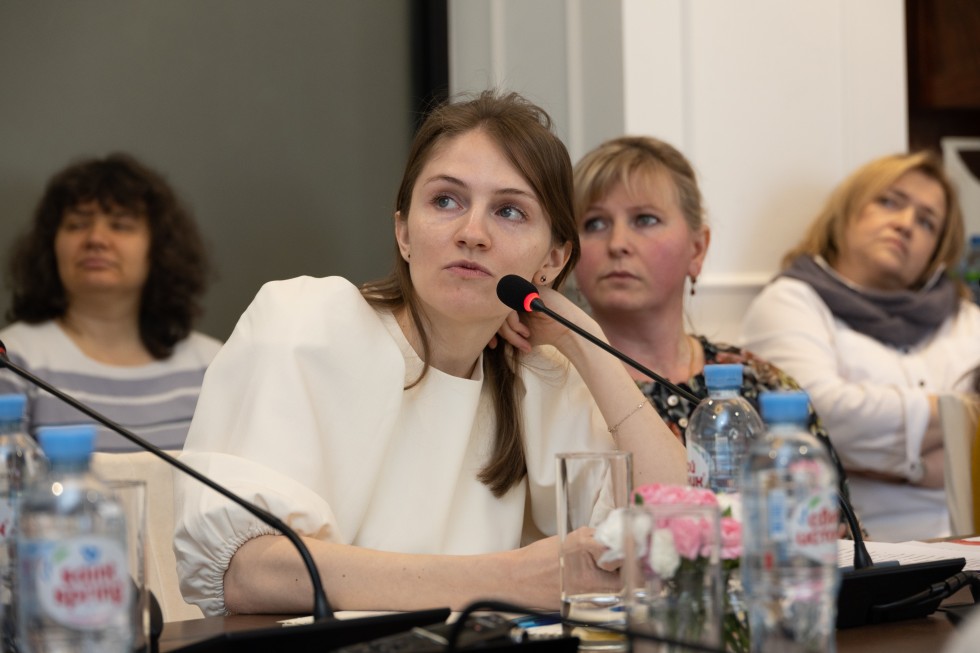
Ekaterina Korolyova
Ekaterina Korolyova, who had never before been involved in social work, presented the results of her work at the charitable organization “Zhitj Vmeste”, where she helped with the “Mapping Aid” programme. The request she fielded came from a fund called “Nochlezhka”. Her “client” was 62-year-old Andrej Saveljevich1, who faced eviction from his flat after his older brother withdrew his name from the list of legal residents at the address. He lived alone and ate exclusively fried patties made from cheese curd (cold, of course) and small chocolate-glazed cheesecakes, that are a favourite in Russia. Due to joint pain, he was having to move around his house by leaning on the walls or by crawling. The elderly man had recently been the target of swindlers, who applied for a loan using his personal data. All this aside and despite his mood swings, his sense of humour remained intact: Andrej considers himself a legend in his region of St Petersburg and entertains youth in the courtyard of his flat block with stories of the 1990s, treating them to coffee brewed in the traditional Turkish style, despite his physical ailments. Andrej suffers greatly from loneliness.
Ekaterina found potential alternative social housing situations for her client, agreed a later date for moving out of his flat, helped him to apply for official handicap status (Group 1) and begin receiving a pension, helped him furnish his new social living space, and organised palliative care. Thanks to her coordinative care, Andrej even received a preliminary diagnosis for his medical condition (motor neuron disease), was able do begin therapy. Ekaterina created an action plan for further diagnosis, attracted volunteer help for social interaction and mobility, and helped Andrej begin to sort out his housing problems.
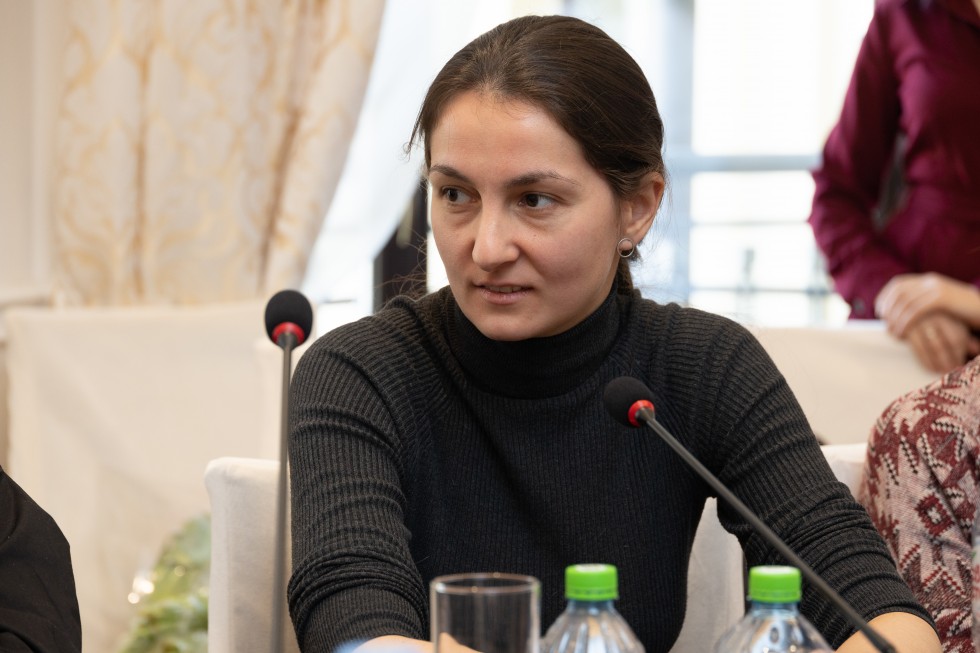
Ekaterina Pavlova
Ekaterina Pavlova (St. Petersburg) volunteered at the “Loskutki” day centre for the elderly at the Jewish charity “Zabota — Chesed Avraam”. She presented the case of 76-year-old Valentina Leonidovna, on which she has worked since September, 2023. Valentina had worked her entire life as a teacher, has a scholarly degree, and has lived alone in St. Petersburg for over 10 years. She has cognitive and psychological difficulties which she recognises and for which she is ready to receive treatment. The request for help came from her daughter, who contacted the Integrated Centre for Social Support, who, together with Valentina Leonidovna’s two grandsons, lives in a foreign country. The daughter asked that the mother be declared mentally incompetent and for help in moving her to a home for the elderly or care home for the mentally disabled, given that she has been unable to find common language with her mother due to her mother’s delusions of detriment and verbal aggression.
Despite not having any formal authority as a social coordinator, Ekaterina managed to build a rapport with her client, diagnose her needs, and work out an algorithm for stabilizing her life, arranging for a team of specialists to support her. After all the documents had been gathered to officially register Valentina’s handicap and medications had been arranged for her therapeutic care, Ekaterina began to help Valentina Leonidovna keep her agendas, think through visual support in her flat, and began a dialogue with her about a longer-term strategy, even managing to include Valentina’s daughter in the discussion.
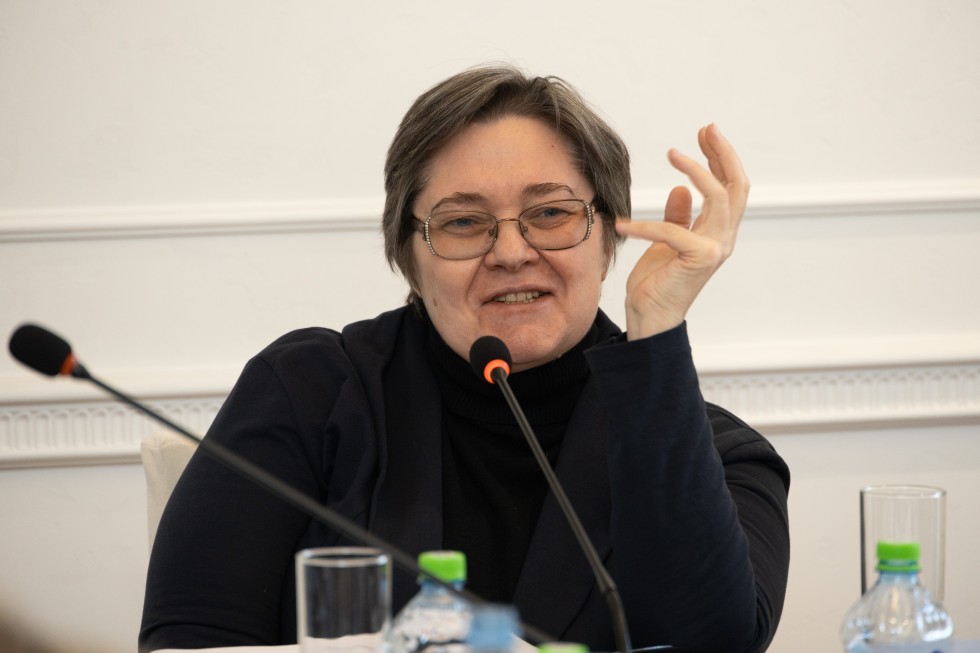
Elena Ivanova
“There are instances when you are working with cases or organizations that have already established their work protocols and where all the aid infrastructure is already in place. Here the main question is the degree to which you can make use of that. But there are other cases in which you are working more or less or your own or in an organization which doesn’t have highly developed aid infrastructure and algorithms, in which case the question is how you will arrange for the aid that is needed. I hope you appreciate that these are two totally different scenarios,” said Elena Ivanova, Head of the Analytical Department for the Charity “Starostj v radostj”, who served as the head of the Certification Commission, commenting upon the results of the graduates’ presentations.
“If your case is like the first scenario, it’s worth considering whether you would be able to work under conditions where the corresponding protocols and infrastructure are lacking and whether your current experience can really help you in situations where you have to work out an algorithm for aiding your client, rather than simply applying algorithms from a pre-existing system.”, Ivanova said. “But if you are working independently, then for you the most important question is the degree to which you have already worked out how to diagnose problems, systemize your results and hunt for resources.”
“The work presented by Ekaterina Korolyovaya and Ekaterina Pavlova, which the commission particularly noted, especially impressed me, because they represent cases in which these graduates worked out solutions for their clients in a very professional manner and got results, in the absence of system or infrastructure” said the Chairman of the Certification Commission.
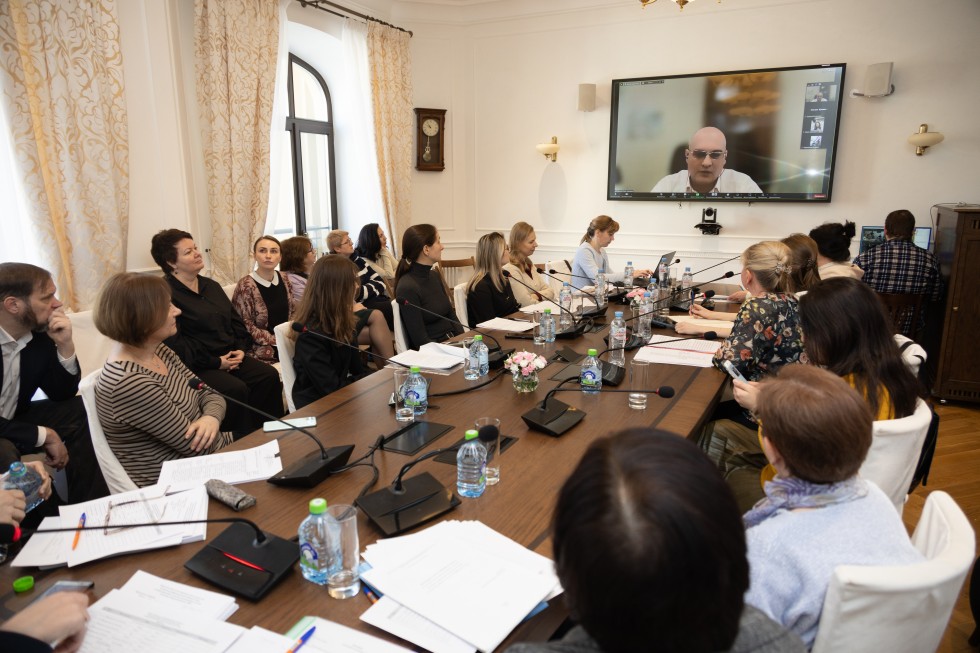
Successful defences were also presented by:
- Natalia Zhuravleva (Moscow), an employee of the “Joint” fund,
- Ekaterina Permyakova (Ufa), a manager for social service at the “Vasha Sidelka” service for social aid,
- Anastasia Fakas (Moscow), who was a coordinator at the “Dom s Mayakom” children’s hospice,
- Irina Lepshkina (Elektrostalj, Moscow Region), GP at the local city clinic,
- Nadezhda Rozanova (Moscow), a coordinator of medical programs for the “Artist” charity for the support of artists,
- Olga Kodyakova (Tosno, Leningrad Region), Director of the “Soty” Centre for cooperation in various social, cultural and charitable projects,
- Lilia Lyamina (Moscow), a coordinator at the “Vremya Detstvo” charity and a volunteer at a hospice in Kurkino,
- Kirill Makarov, an employee of the regional public charity “Centre for Therapeutic Pedagogics”,
- Yulia Egorova (Moscow), a hospice volunteer in Degunino,
- Tatyana Bulankina (Moscow), a teacher and a charity volunteer.
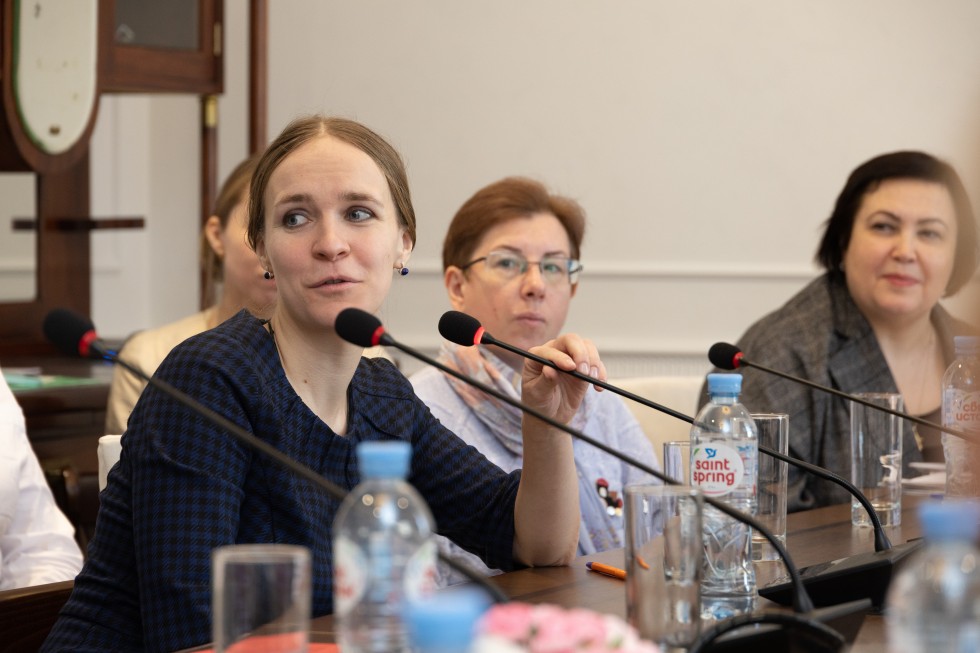
Elizaveta Oleskina
“It is a great happiness for me to be with you today — both your professionalism and your enthusiasm are impressive. May you be many in number!” said “Starostj v radostj” Director Elizaveta Oleskina to the graduates of the SFI social work programme. “We are experiencing a lack of social work coordination in the countryside, and good times will have truly arrived when all the employees of social aid programmes begin to think like you do. I’m unmeasurably grateful to our colleagues at St Philaret’s Institute. I wish you energy for everything you wish to achieve. You were the first to try whether something like this is possible, even when the results were not obvious; you forged on with developing this program despite all that.”
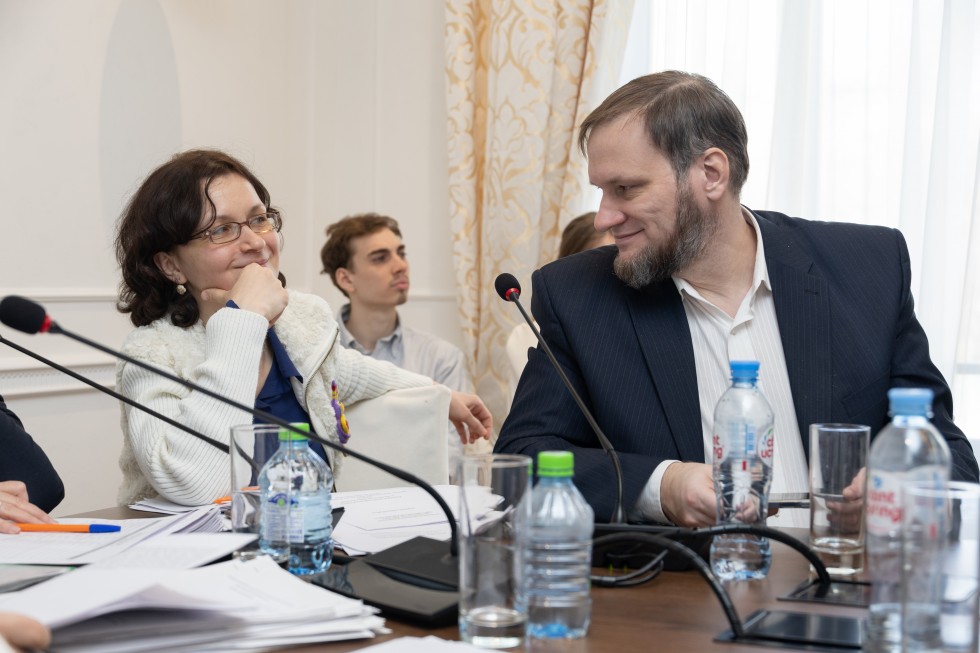
Olga Shalkovskaya and Pavel Kantor
Marina Naumova, Vice-Rector for SFI Development and Head of the SFI Social Work Department, and Olga Shalkovskaya, Head of service workflow at the charity “Zhiznennyj Putj” and teacher of our course entitled “Models for Social Work”, both worked under Elena Ivanova on the Certification Commission.
The following people also listened to the students defending their work: Natalia Dedenjova, teacher of a course in palliative care and senior manager for care of adults at a charity called “Vera”; Maria Aleksakova, Head of Programmes at the Timchenko Fund; Tatiana Archakova, teacher of “Introduction to the Profession” and Director of the Dirizhablj Centre for Development of Social Practices; Igor Baranov, Head of the Competency Centre at the state funded Western Gerontology Centre; Anna Bitova, Chairman of the Board of the regional organisation “Centre for Therapeutic Pedagogics”; Tatiana Zaljtsman, Head of the Faculty of Social Work at St. Tikhon’s Orthodox University of Humanities; Pavel Kantor, a lawyer for the “Centre for Therapeutic Pedagogics” and teacher of courses on the legal basis of social work and client advocacy; Maria Savenko, Head of support services at the charity “Vera”; Anna Savik, Head of Social Work Programmes at “Zhitj Vmeste” and assistant teacher of our course “Models for Social Work”, as well as various other social work specialists and charity professionals.
- 1 Client names have been altered. — Editor’s note.
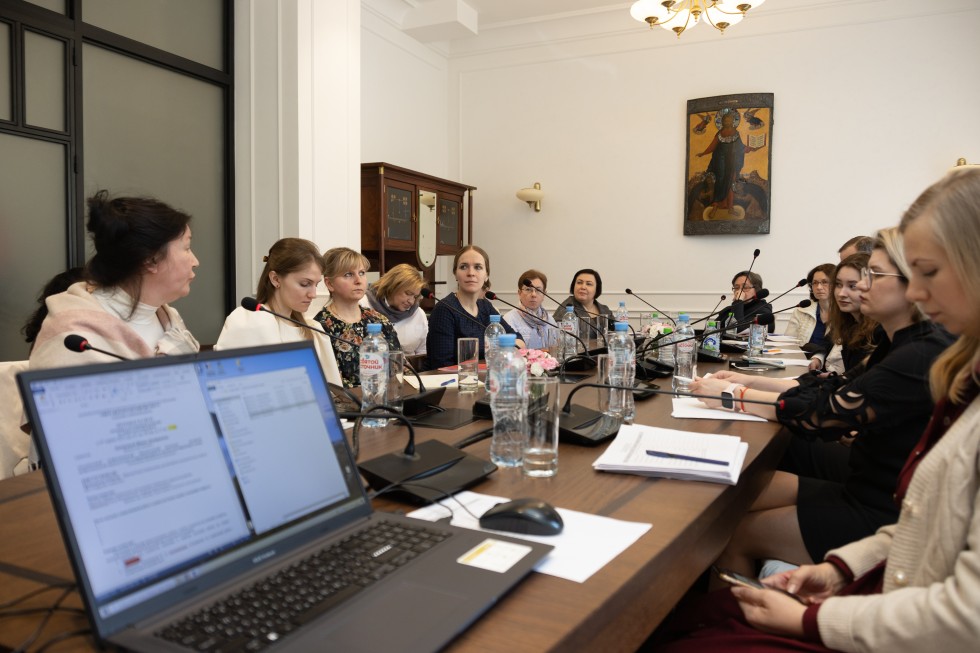
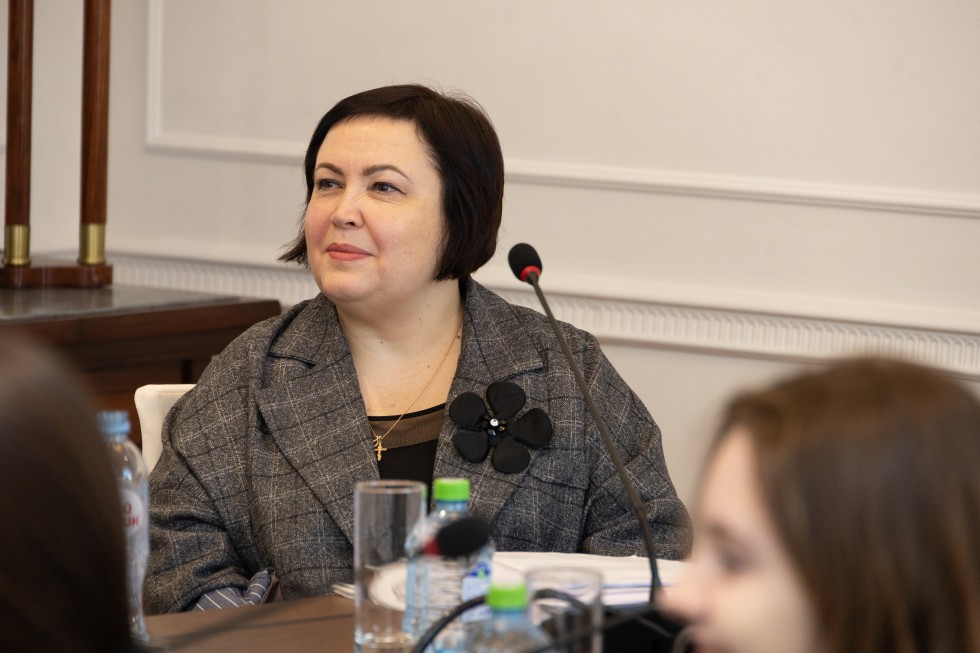
Marina Naumova
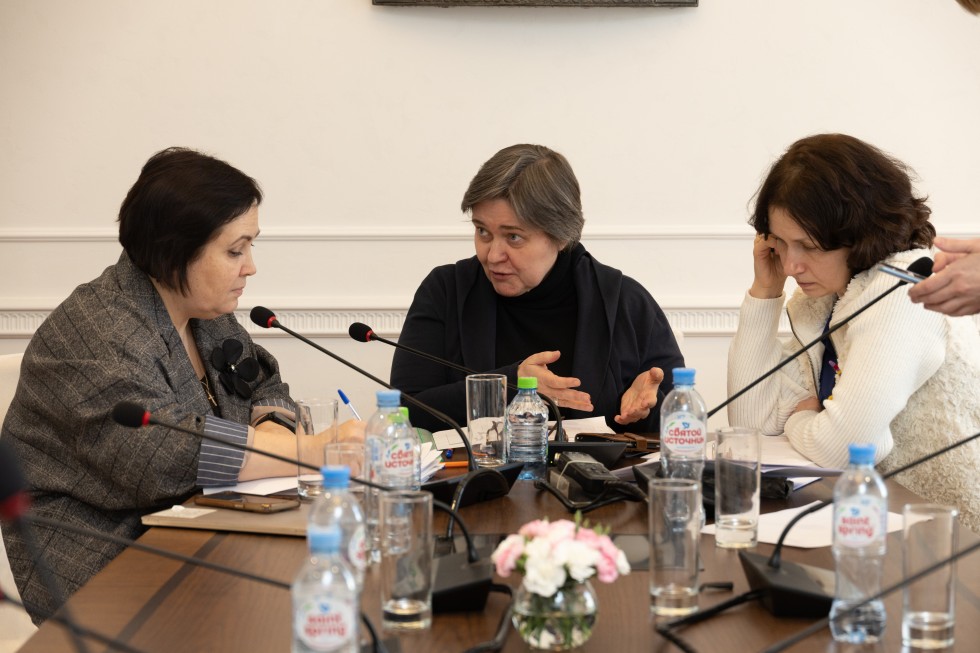
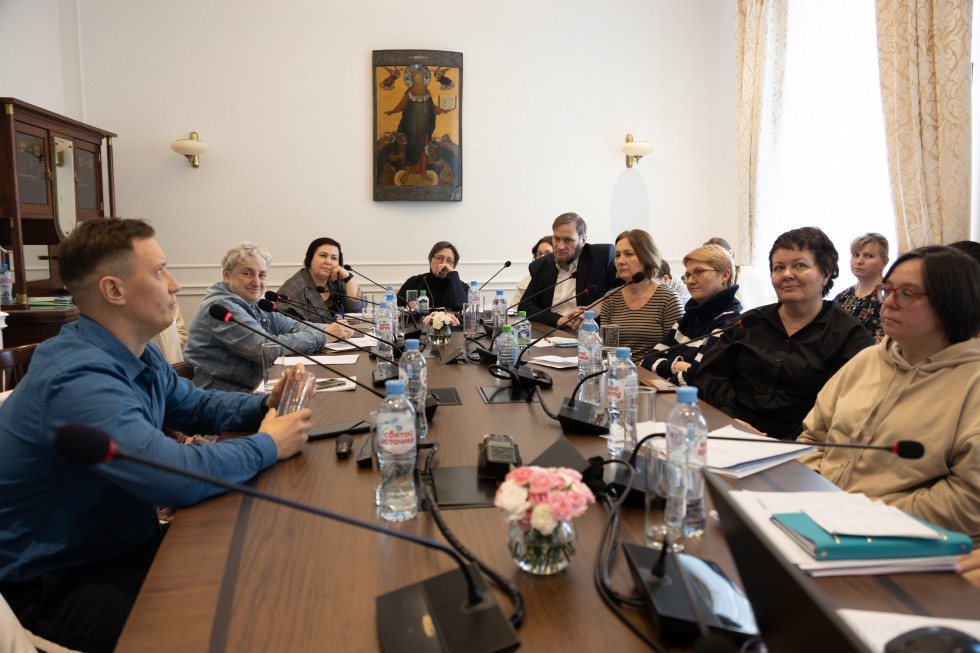
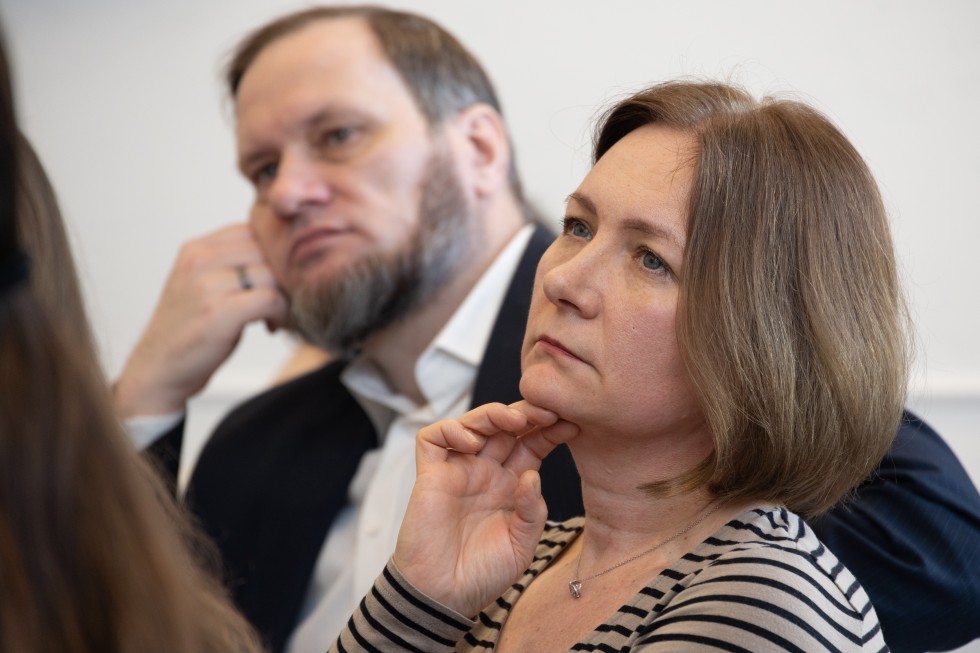
Nataliya Dedenyova
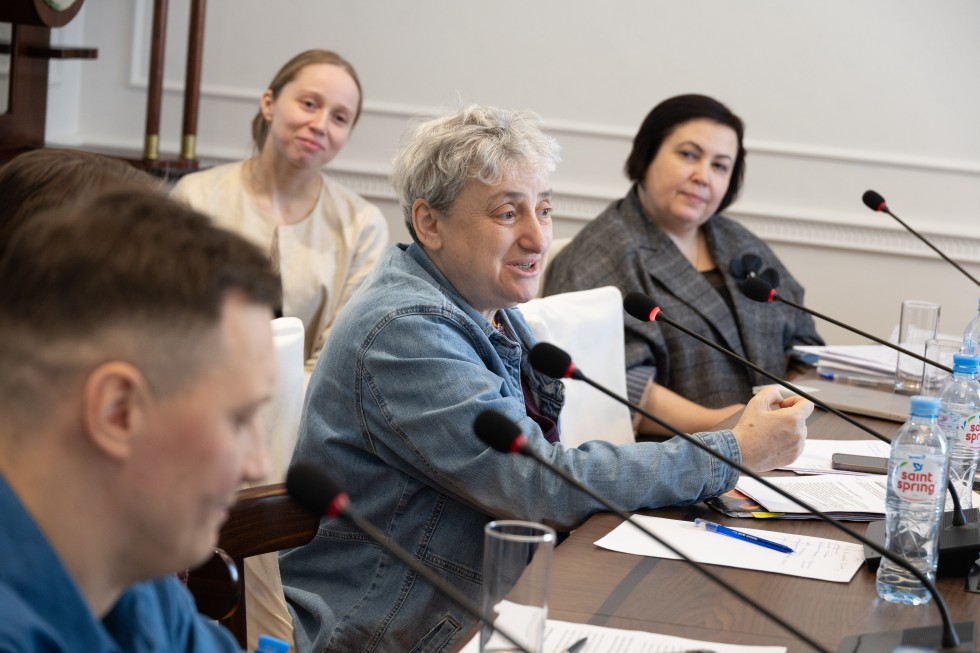
Anna Bitova
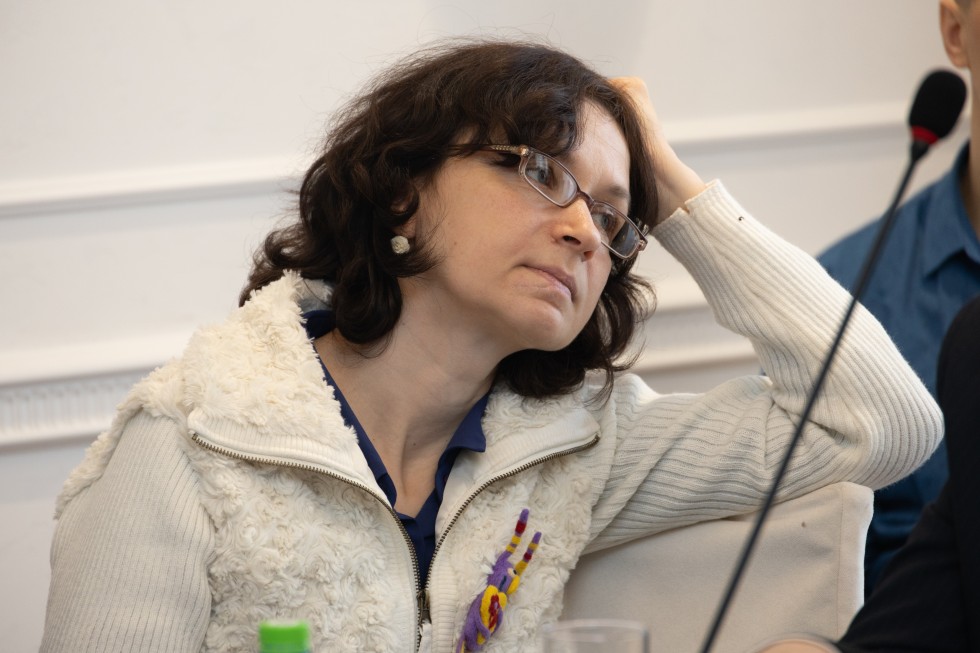
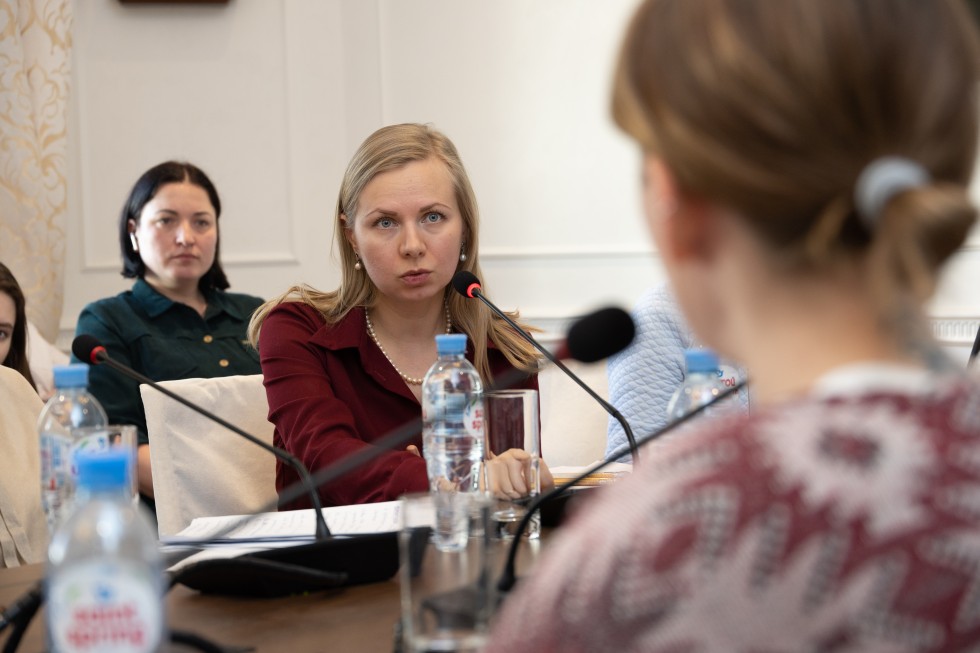
Anna Savik
